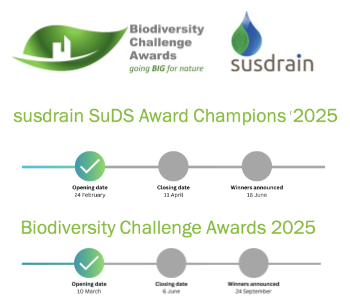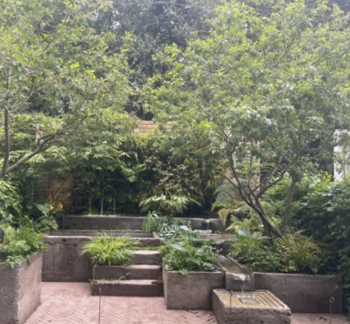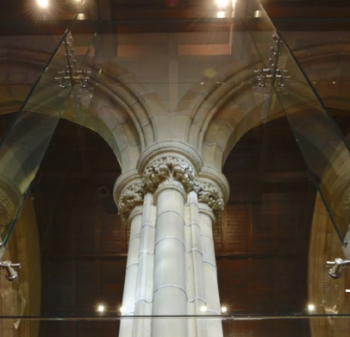Code of construction practice
A code of construction practice (CoCP) sets out the standards and procedures to which a developer or contractor must adhere in order to manage the potential environmental impacts of construction works.
Many local authorities (and some other public bodies and large clients) have codes of practice that apply to new developments, setting out requirements in relation to matters such as:
- Permitted working hours.
- Liaison with neighbours.
- Noise and dust monitoring.
- Air quality.
- Agriculture, forestry and soil.
- Cultural heritage.
- Ecology.
- Settlement.
- Land and landscape protection.
- Traffic and transport.
- Waste management.
CoCP’s may be attached to a planning permission, or they may form part of the contract documentation for a project. Suppliers, or developers may be required to develop a site environmental management plan (SEMP) setting out how they will comply with the CoCP.
[edit] Related articles on Designing Buildings Wiki
- BREEAM Considerate Construction.
- Clerk of works.
- Complaining about construction sites.
- Considerate Contractors.
- Construction dust.
- Damage caused by construction works.
- Nuisance.
- Planning obligation.
- Planning permission.
- Pollution.
- Quiet period.
- Site inspections.
- Site inspector.
- Site waste management plan.
- Site rules.
- What hours are construction sites allowed to operate?
Featured articles and news
Insights of how to attract more young people to construction
Results from CIOB survey of 16-24 year olds and parents.
Focussing on the practical implementation of electrification.
Sustainable Urban Drainage and Biodiversity
Awards for champions of these interconnected fields now open.
Microcosm of biodiversity in balconies and containers
Minor design adaptations for considerable biodiversity benefit.
CIOB student competitive construction challenge Ireland
Inspiring a new wave of Irish construction professionals.
Challenges of the net zero transition in Scotland
Skills shortage and ageing workforce hampering Scottish transition to net zero.
Private rental sector, living standards and fuel poverty
Report from the NRH in partnership with Impact on Urban Health.
.Cold chain condensing units market update
Tracking the evolution of commercial refrigeration unit markets.
Attending a conservation training course, personal account
The benefits of further learning for professsionals.
Restoring Alexander Pope's grotto
The only surviving part of his villa in Twickenham.
International Women's Day 8 March, 2025
Accelerating Action for For ALL Women and Girls: Rights. Equality. Empowerment.
Lack of construction careers advice threatens housing targets
CIOB warning on Government plans to accelerate housebuilding and development.
Shelter from the storm in Ukraine
Ukraine’s architects paving the path to recovery.
BSRIA market intelligence division key appointment
Lisa Wiltshire to lead rapidly growing Market Intelligence division.
A blueprint for construction’s sustainability efforts
Practical steps to achieve the United Nations Sustainable Development Goals.
Timber in Construction Roadmap
Ambitious plans from the Government to increase the use of timber in construction.
ECA digital series unveils road to net-zero.
Retrofit and Decarbonisation framework N9 launched
Aligned with LHCPG social value strategy and the Gold Standard.

























Comments
A "Code of Construction Practice" (CCP) is a set of guidelines, standards, and best practices that govern the construction process of a project. It outlines the rules and expectations for various aspects of construction to ensure safety, quality, environmental responsibility, and compliance with regulations. While the specific content of a CCP can vary depending on the nature of the project, local regulations, and industry standards, here are some common elements that are typically included:
1. **Health and Safety:** A CCP should prioritize the safety of all individuals involved in the construction process, including workers, contractors, and visitors. It should outline safety procedures, protective gear requirements, emergency protocols, and measures to prevent accidents and injuries.
2. **Environmental Considerations:** Construction activities can have a significant impact on the environment. A CCP might include guidelines for minimizing dust, noise, and other forms of pollution. It may also address waste management, recycling, and the proper disposal of hazardous materials.
3. **Design and Engineering Standards:** The CCP should specify the design and engineering standards that must be followed during the construction process. This ensures that the built structure meets the required quality and functionality criteria.
4. **Materials and Methods:** The code should detail the types of materials that can be used in construction, as well as the approved construction methods. This helps maintain consistency in the quality of work and prevents the use of subpar materials.
5. **Permitting and Approvals:** The CCP should outline the process for obtaining necessary permits and approvals from regulatory authorities. It ensures that the project is compliant with local building codes and regulations.
6. **Project Documentation:** The CCP might include requirements for proper project documentation, including drawings, plans, specifications, and progress reports. This documentation helps maintain transparency and accountability throughout the project.
7. **Quality Control and Assurance:** The CCP should establish procedures for quality control and assurance to ensure that the construction work meets the specified standards. This may include regular inspections, testing, and verification of workmanship.
8. **Site Management:** Guidelines for site management cover issues such as site access, security, storage of materials, and proper organization of the construction site.
9. **Work Hours and Restrictions:** The CCP could specify the allowable working hours, noise restrictions, and other limitations to minimize disruptions to the surrounding community.
10. **Contractor and Subcontractor Responsibilities:** The responsibilities of the main contractor and any subcontractors involved in the project should be clearly defined in the CCP.
11. **Change Management:** The CCP might outline the process for handling changes to the project scope, design, or timeline. This helps manage potential impacts on the project's progress and budget.
12. **Stakeholder Communication:** The CCP may include guidelines for communicating with stakeholders, including clients, neighbors, and local authorities. Effective communication can prevent misunderstandings and conflicts.
It's important to note that a Code of Construction Practice is often tailored to the specific requirements of a project and the regulatory environment of the location where the construction is taking place. Creating and adhering to a comprehensive CCP can help ensure a smooth construction process, minimize risks, and lead to the successful completion of the project.